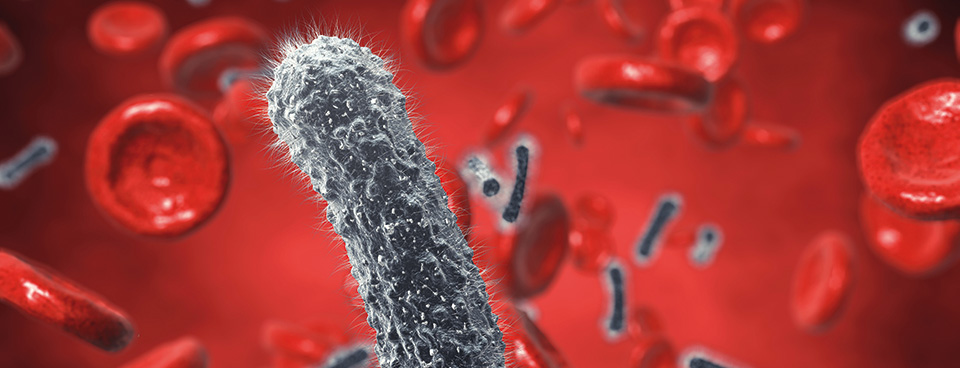Development of a modular diagnostic system to quickly identify pathogens and antibiotic resistance in cases of life-threatening diseases


Infections with multi-resistant pathogens are one of the greatest threats to health today. Sepsis is one of the most severe infections, causing more than 56,000 deaths per year in Germany alone and extremely high costs of clinical treatment. The high mortality rate of sepsis patients is caused mainly by the long period of time – up to five days – between suspected diagnosis and specific individual therapy.
Also, there is no adequate therapy for infections caused by multidrug-resistant pathogens. Key to successful therapy is to shorten the time until a specific diagnosis is available. The diagnosis of PathoSept therefore includes the rapid identification of the pathogen using molecular biological detection systems and the quantitative determination of the antibiotic resistance profile. The combination of genetic and phenotypic diagnostic methods will allow us to start a specific individual therapy within nine hours at the latest. PathoSept will thus help to significantly reduce the mortality rate of patients with bacterial infections and sepsis, to decrease development and dissemination of multidrug-resistant pathogens, and to slash intensive-care costs in hospitals.
A unique feature of our PathoSept system will be its novel workflow enabling culture independent diagnostics. The system we develop will be based on a number of modules, each one a significant innovation: New protocols for the separation of pathogens, highly sensitive assays for the identification of pathogens via qPCR, an incubator for controlled replication of pathogens, a growth monitor for fast quantification of antibiotic resistances, and a user-friendly software that may be integrated flexibly. The user-centered development process involves the users in the early phases and will lead to a system with high user acceptance.



As one of the winning projects of the lead market competition Lifesciences.NRW, PathoSept will be funded by the state of NRW using funds from the European Regional Development Fund (ERDF) 2014-2020. In addition to Fraunhofer FIT as coordinator, the University Hospital Aachen (Chair of Anaesthesiology; Clinic for Operative Intensive Medicine and Intermediate Care), the University Hospital Bonn (Institute for Medical Microbiology, Immunology and Parasitology), Carpegen GmbH, MERLIN Gesellschaft für mikrobiologische Diagnostika mbH and Jüke Systemtechnik GmbH are involved.